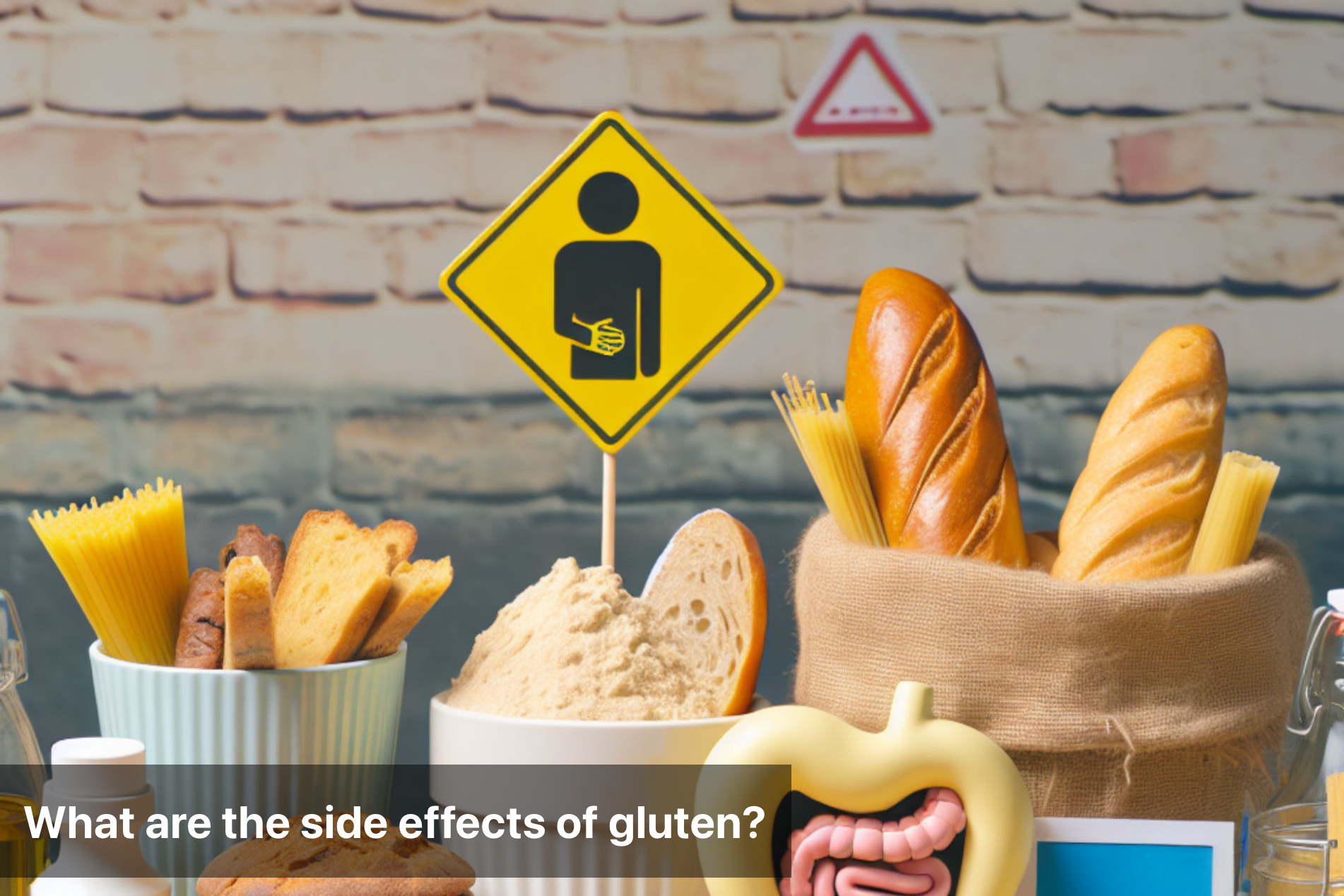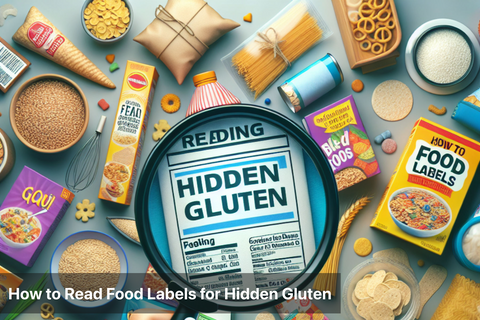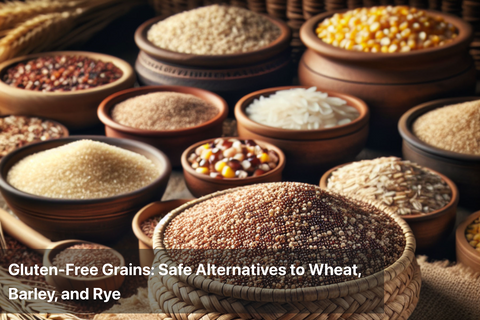
What are the side effects of gluten?
Gluten is a protein composite found in wheat and other grains like barley and rye. It gives dough its elasticity, helping it rise and keep its shape. Many food products, especially baked goods, contain gluten as a key ingredient for texture and structure.
Gluten primarily comes from the endosperm of the grain, which is ground into flour. The two main proteins in gluten are glutenin and gliadin. These proteins create a sticky network that traps gases during the baking process, leading to the fluffy texture in bread and baked goods.
Understanding the sources of gluten is vital for individuals looking to avoid it due to sensitivities or health reasons. While wheat is the most common source, gluten can also be found in various processed foods, sauces, and even unexpected items like soy sauce.
Being aware of gluten and its presence in everyday food items is crucial for individuals with gluten sensitivities or celiac disease. By recognizing where gluten comes from and how it functions in food preparation, people can make informed choices about their diet to support their health and well-being.

Common Side Effects of Gluten
-
Digestive Issues – Bloating, gas, diarrhea, constipation, and abdominal pain.
-
Fatigue – Feeling unusually tired or exhausted.
-
Headaches – Frequent or severe headaches or migraines.
-
Brain Fog – Difficulty concentrating, memory problems, and mental fatigue.
-
Joint Pain – Aching or stiffness in the joints.
-
Skin Problems – Rashes, eczema, or itchy skin.
-
Mood Changes – Irritability, anxiety, or depression.
-
Nutrient Deficiencies – Malabsorption leading to deficiencies in iron, calcium, and other vitamins.
-
Weight Fluctuations – Unexplained weight loss or gain.
-
Autoimmune Reactions – Exacerbation of other autoimmune conditions.
Gluten Sensitivity and Celiac Disease
|
Aspect |
Gluten Sensitivity |
Celiac Disease |
|---|---|---|
|
Definition |
Adverse reaction to gluten without autoimmune damage. |
Autoimmune disorder causing damage to the small intestine. |
|
Symptoms |
Bloating, gas, fatigue, headaches, joint pain, mood changes. |
Diarrhea, abdominal pain, weight loss, malabsorption, dermatitis herpetiformis. |
|
Diagnosis |
No specific test; diagnosis by exclusion and symptom improvement on a gluten-free diet. |
Diagnosed through blood tests (tTG-IgA) and biopsy of the small intestine. |
|
Intestinal Damage |
No intestinal damage observed. |
Damage to the villi of the small intestine. |
|
Genetics |
No specific genetic markers. |
Linked to HLA-DQ2 and HLA-DQ8 genes. |
|
Treatment |
Gluten-free diet may alleviate symptoms. |
Strict lifelong gluten-free diet is required to manage symptoms and prevent damage. |
|
Cross-Contamination |
Less critical, but still important to avoid gluten. |
Critical to avoid all sources of gluten to prevent damage. |
|
Associated Conditions |
May be associated with IBS or other functional gastrointestinal disorders. |
Higher risk of other autoimmune diseases (e.g., type 1 diabetes, thyroid disorders). |
|
Long-Term Effects |
Symptoms may improve with diet, but no long-term intestinal damage. |
Risk of long-term complications if untreated, such as osteoporosis, infertility, and certain cancers. |
Gluten-Free Diet and Alternatives
|
Grains |
Rice, quinoa, millet, buckwheat, amaranth |
|
Flours |
Almond flour, coconut flour, rice flour, oat flour (certified gluten-free) |
|
Pasta |
Gluten-free pasta (made from rice, corn, quinoa, or legumes) |
|
Bread |
Gluten-free bread (made from rice, almond, or coconut flour) |
|
Cereals |
Gluten-free cereals (corn flakes, rice-based cereals) |
|
Baking Mixes |
Gluten-free baking mixes (for cakes, cookies, muffins) |
|
Snacks |
Gluten-free snacks (rice cakes, gluten-free crackers) |
|
Sauces & Condiments |
Tamari (gluten-free soy sauce), vinegar, gluten-free dressings |
|
Beer |
Gluten-free beer, cider, or alcohol (made from gluten-free grains) |
|
Soups |
Gluten-free soups or homemade broths (check labels for hidden gluten) |

Gluten Side Effects: A simplified guide
-
Gluten sensitivity and celiac disease present significant health concerns for many individuals, leading to various side effects such as digestive issues, bloating, fatigue, and skin problems.
-
It is crucial to understand the impact of gluten on our bodies and to recognize the symptoms associated with gluten-related conditions.
-
By adopting a gluten-free diet and exploring alternative food options, individuals can manage their symptoms effectively and improve their overall well-being.
-
While wheat gluten is a common ingredient in many food products, there are numerous gluten-free alternatives available that offer a healthier choice for those with gluten sensitivities or celiac disease.
-
Maintaining awareness of gluten side effects is essential for individuals seeking to lead a healthy lifestyle and avoid potential health complications related to gluten consumption.
-
In conclusion, being informed about gluten side effects empowers individuals to make educated choices about their dietary habits, promoting better health and well-being.
-
It is recommended to consult healthcare professionals for proper diagnosis and guidance if experiencing symptoms related to gluten sensitivity or celiac disease. Further research in this field can lead to advancements in gluten-related healthcare and treatment options.
This Blog post is an initiative by Lo! Foods, to provide accurate and Nutritionist / Doctor approved information related to Health. Lo! Foods is India's leading brand for Everyday Functional Foods. Foods designed for specific Health conditions or Needs. Lo! Foods also runs India's largest range of Low Carb Healthy Cloud Kitchens, under the brand names of Lo!, ProteinChef, ATH (All Things Healthy) and DiabeSmart.















Leave a comment
Your email address will not be published.